Vincent van Gogh On Creating Something Beautiful, Self-Doubt, and Nature
'If one truly loves nature one finds beauty everywhere'
Hi friends,
When I’m stuck, in a rut, or need to be inspired, I revisit my favorite Vincent van Gogh collection of quotations. Most come from the letters he wrote his brother Theo, his best friend and loyal supporter. I regularly come back to the letters, packaged in a small, wonderful blue book I picked up at the New York Public Library: “Vincent van Gogh: Creative Inspiration,” published in 2017.
Van Gogh was only 37 years old when he shot himself in 1890 after years of poverty and mental illness, plus exhaustion from over-working and setting enormously high standards for himself and his paintings, according to the van Gogh Museum.
Van Gogh is one of the most influential figures in Western art, but he died having sold only one painting in his life. He traded other work with artists, usually in exchange for food or painting supplies. At age 27, he’d been a teacher, art dealer, and lay minister, among other jobs, before embarking on a prolific career as a painter and drawer for the last decade of his life, amassing 900 paintings. He adored nature and enjoyed painting outdoors. He also loved painting flowers. There’s no telling how much more wonderful art he would’ve created had he lived a few decades longer.
From van Gogh, we can learn how to have patience with ourselves, our work, and one another; how to grapple with uncertainty; how to grow; and, perhaps most of all, how to find beauty in everyday life.
Here are my favorite thoughts from van Gogh’s letters (all direct quotes):
Through working hard, old chap, I hope to make something good one day. I haven’t got it yet, but I’m hunting it and fighting for it, I want something serious, something fresh — something with soul in it! Onward, onward.
It seems to me more and more that the most practical and direct way to make progress with the work is not to look too far away and to stay down to earth.
Do you get up early? I do regularly, it’s good to make a habit of it. It’s precious and already very dear to me, that early morning twilight.
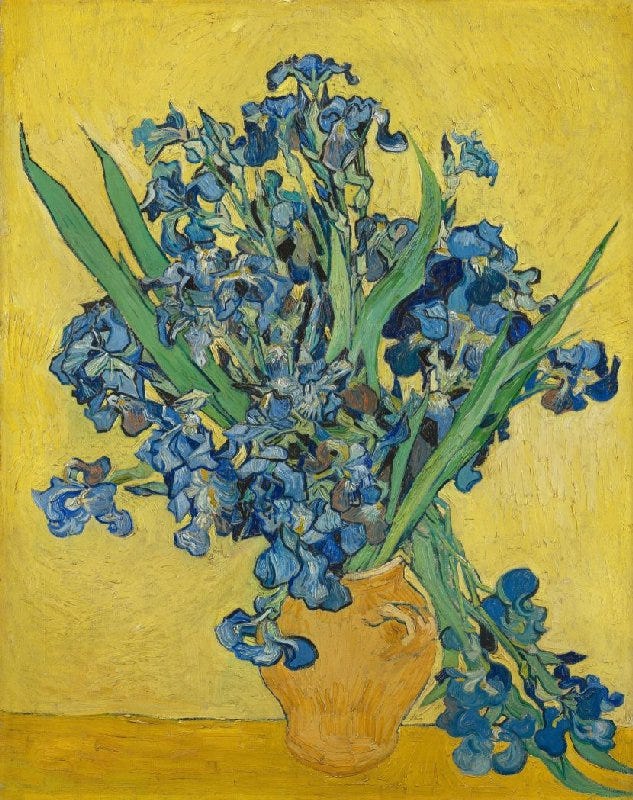
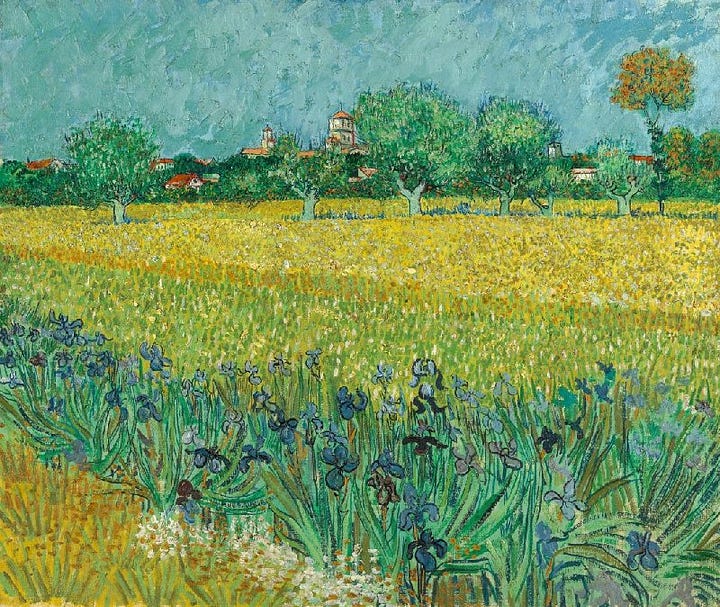

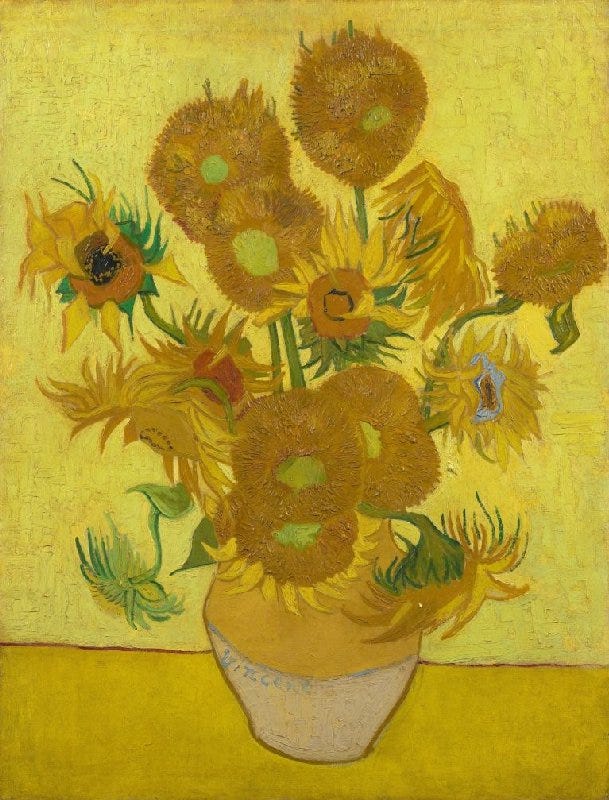
If one truly loves nature one finds beauty everywhere.
What I think is the best life, oh without even the slightest shadow of a doubt, is a life made up of long years of being in touch with nature out of doors.
Rarely of late has the stillness, nature alone, so appealed to me. Sometimes it’s precisely these spots where one no longer feels anything of what’s known as the civilized world and has definitely left all that behind — sometimes it’s precisely those spots that one needs to achieve calm.
As long as there’s bread in the house and I have a little in my pocket to pay for models, what more could I want? My enjoyment lies in my work getting better — and that absorbs me more and more.
Persevering depends on our will to stay together … people strengthen each other when they work together.
Find things beautiful as much as you can, most people find too little beautiful.
I know for certain that something would awaken in your own studio which you don’t know of now — a huge, hidden force of working and creating. And once it’s awake, it’s awake for good.
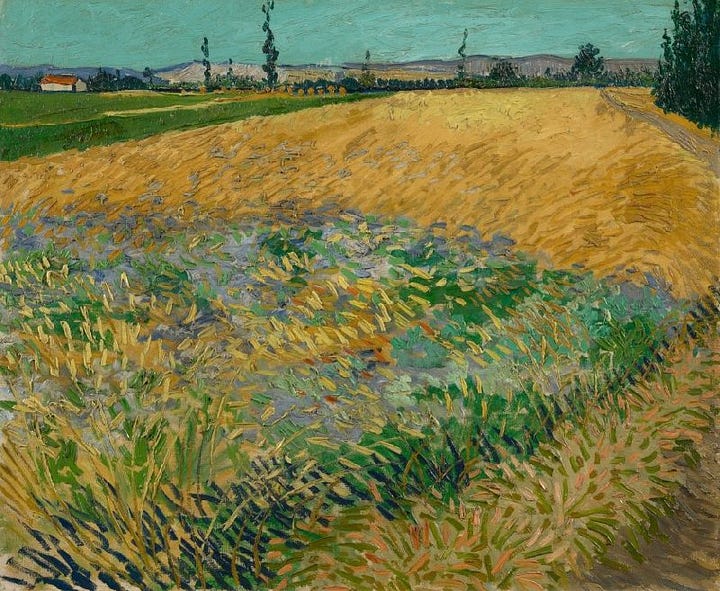



Life is the same as drawing: sometimes one has to act quickly and resolutely, tackle things with willpower, take care that the broad outlines appear with lightning speed. It’s no use hesitating or doubting.
Sometimes a helmsman succeeds in making use of a gale to make headway instead of foundering because of it.
Let’s make the most of the time, because wasting time is the most expensive thing of all.
We must treat the world with so much good heart, so much energy, so much coolness, not taking things too hard.
A person who doesn’t feel small — who doesn’t realize that he’s a speck — what a fundamental mistake he makes.
I believe so strongly in your artistic ability that to me you’ll be an artist as soon as you pick up a brush or piece of chalk and, clumsily or not clumsily, make something.
Enjoy yourself too much rather than too little, and don’t take art or love too seriously either.
In the comments below, I’d love to hear which reflections resonate most with you and your work.
A Few Things That Caught My Attention This Week:
Finally, I couldn’t help but share this as a parting thought from Ram Dass in Be Here Now:
“When you go out into the woods, and you look at trees, you see all these different trees. And some of them are bent, and some of them are straight, and some of them are evergreens, and some of them are whatever. And you look at the tree and you allow it. You see why it is the way it is. You sort of understand that it didn’t get enough light, and so it turned that way. And you don’t get all emotional about it. You just allow it. You appreciate the tree.
The minute you get near humans, you lose all that. And you are constantly saying ‘You are too this, or I’m too this.’ That judgment mind comes in. And so I practice turning people into trees. Which means appreciating them just the way they are.”
Celebrate your gifts,
Matthew

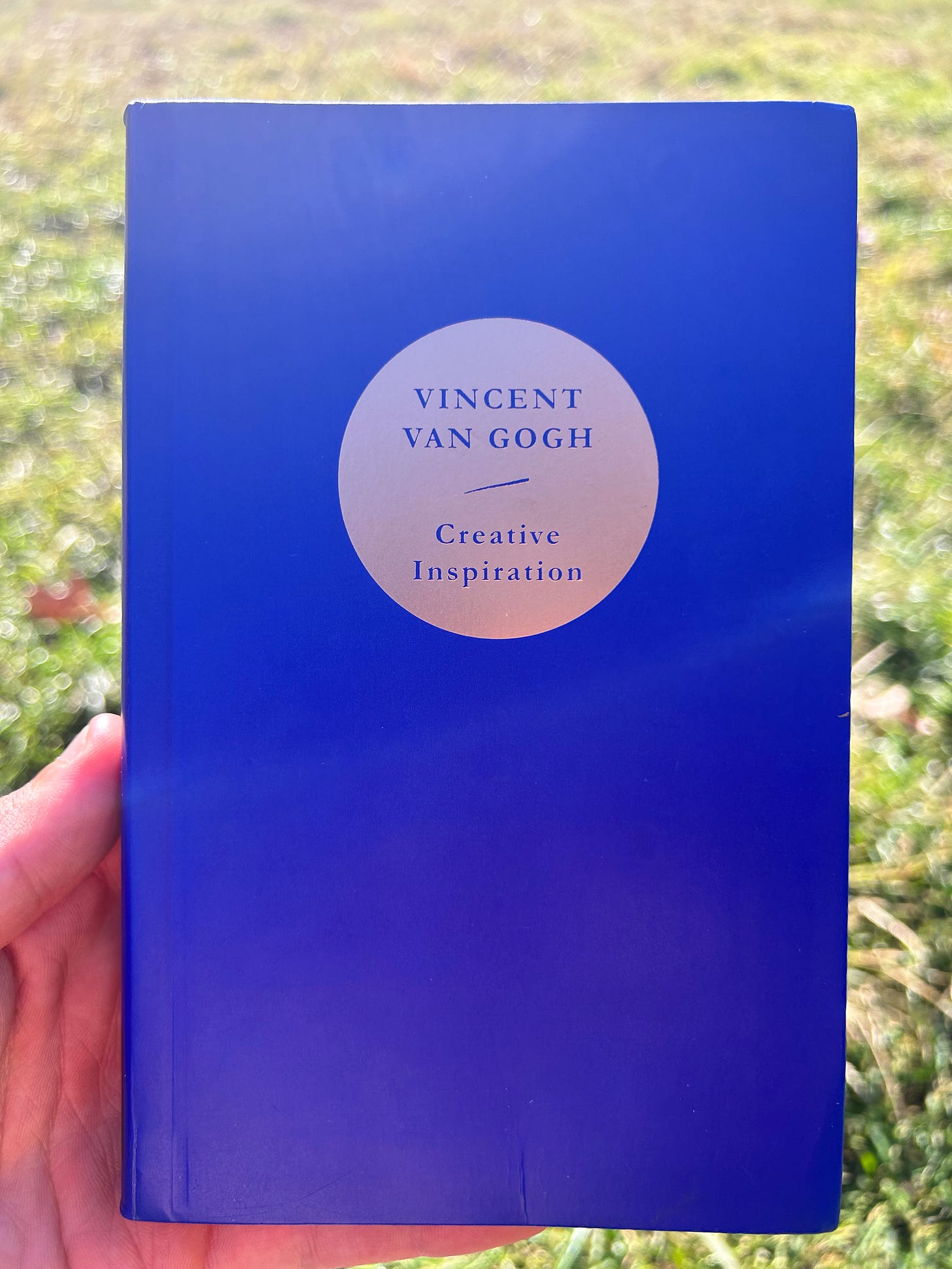
Thank you for sharing this Matthew. It was just what I needed to read today.
Appreciating beauty and finding things beautiful — and allowing oneself to love nature such that even more beauty can be illuminated — are so important, and ever more difficult when various forces work to leech away our precious attention. In How to Do Nothing, Jenny Odell draws from Martin Buber's theory of the It-Thou dichotomy of how we (humans) address existence. Using the example of a tree, an "I-it" relation objectifies the tree, fitting it into heuristics and conceiving of it only in terms bound by our lived experience. An "I-Thou" encounter allows us to acknowledge the "absolute equality" of the other, and thus gives space to fully attend to the tree — or, as Dass would put it, "allow it," and appreciate it simply for what it is. Thanks for sharing.